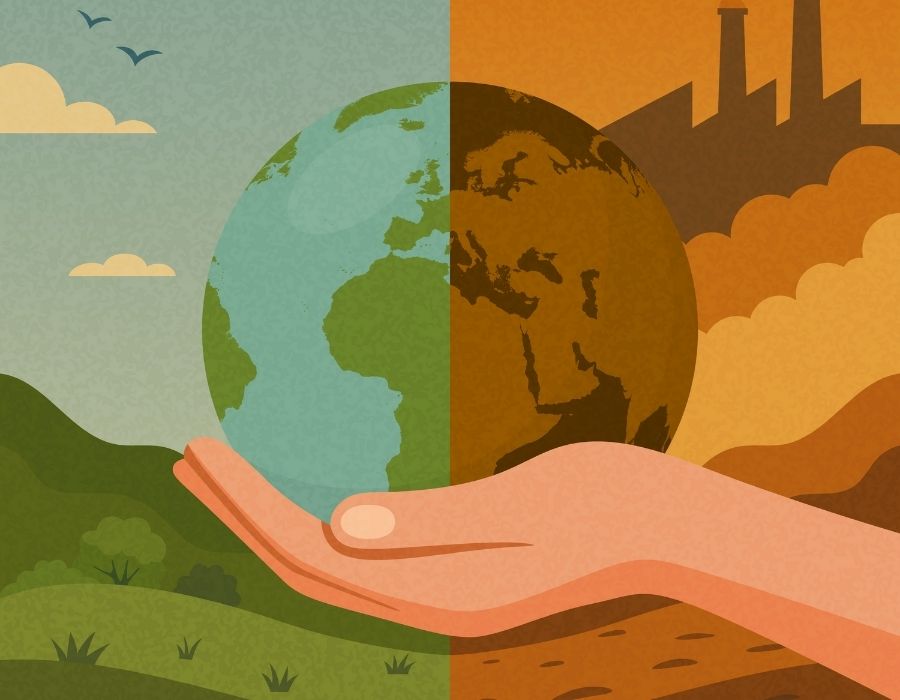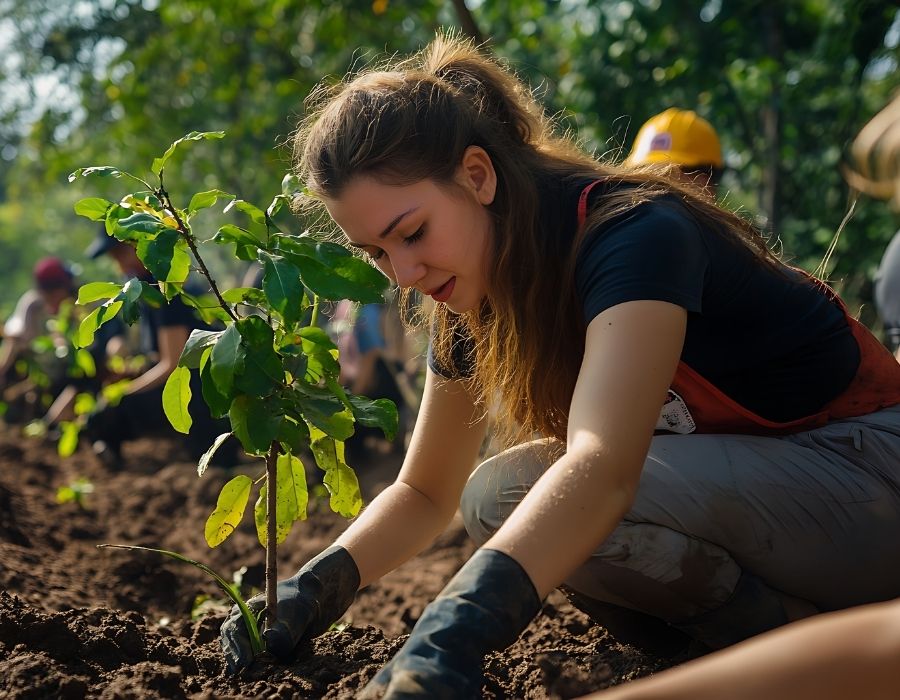The impact of climate change is becoming increasingly evident in Vietnam, from the degradation of Pomu forests to the gradual loss of bees’ natural habitats.Rising temperatures, extreme weather events, and frequent natural disasters are transforming the country’s ecosystems.In this article, let’s explore with Karuna Vietnam the deeper impacts of climate change on forests and bees, as well as the sustainable solutions to protect both nature and people.
Understanding the Impact of Climate Change

The impact of climate change in Vietnam is becoming more visible every year. Sea levels are rising, temperatures are soaring, and rainfall is becoming increasingly erratic. It not only affects human life but also disrupts the delicate balance of forests and pollinators like bees.
Longer dry seasons, more frequent floods, and shrinking habitats for countless species are direct consequences of climate change. These changes weaken forest ecosystems and drastically reduce food sources for bees.
Forests and the Impact of Climate Change
Vietnam’s forests, especially the Pomu forests in the Central Highlands, are among the first victims of climate change. Drought, wildfires, and soil erosion have become severe, threatening biodiversity and natural resilience.
Once natural shields that regulated climate, protected the soil, and stored water, these forests are now losing their ability to perform those functions.
Protecting Pomu forests is not just about planting more trees but about restoring life. Each hectare of reforested land in Vietnam helps absorb CO₂, preserve biodiversity, and reduce the impact of climate change on a larger scale.
The impacts and Bees

Bees are the “silent workers” that sustain life on Earth. Yet, the impact of climate change has disrupted flowering cycles, temperature patterns, and humidity throwing their natural rhythm into disarray. In provinces such as Kon Tum and Quang Nam, where beekeeping is linked with forest conservation, local farmers have reported sharp declines in bee colonies year after year.
When flowers bloom earlier or later than usual because of climate change, bees can no longer adapt in time, leading to lower pollination rates, fewer regenerating trees, and declining crop yields. A vicious cycle begins: fewer bees, fewer trees, a hotter planet leading to worsening climate change.
Reducing Environmental Risks and Promoting Sustainable Development
Moving Toward Collective Action
To reduce environmental risks in Vietnam and effectively respond to climate change, collaboration among communities, businesses, and organizations is essential.
Every small step contributes to reducing the impact of climate change in VietNam and promoting sustainable growth.
Protecting Pomu Forests and Native Ecosystems
The Pomu forest in the Central Highlands is one of Vietnam’s most precious ecosystems, playing a vital role in climate regulation and water conservation. Protecting Pomu forests helps reduce soil erosion, prevent flooding, and maintain biodiversity, the foundation of every sustainable ecosystem.
Initiatives such as “Protect Pomu Forest” by Karuna Vietnam aim to combine forest conservation with community-based livelihoods, bringing mutual benefits to both people and nature.
Supporting Community Reforestation Programs
